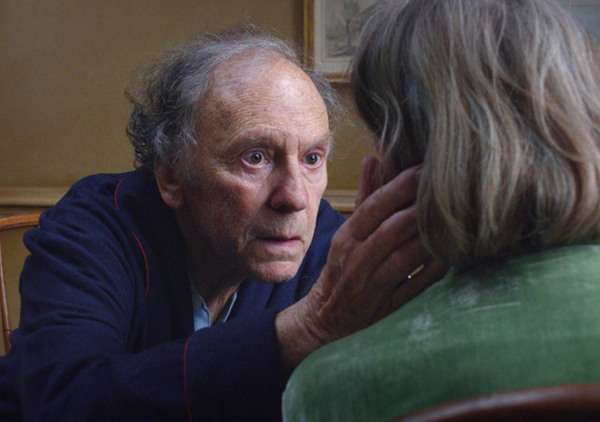
Amour — Best Film of the Year
Beware of a film called Love. In Amour, Michael Haneke takes you to an end of life inevitability that seems distanced enough to shield you from some of the pain there. Then he takes you right to that pain. This is a heartbreaking film. I hope that description won’t keep you from seeing it.

Jean Louis Trintigant Searches for What Once Was There – “Amour”
Amour opens as Anne (Emmanuelle Rivas) starts forgetting things, just the way you’ve seen it in your own family. She and Georges (Jean-Louis Trintignant) are classical musicians, unpretentious aesthetes who teach, live simply, and reserve their time for concerts and for their own students – and a little time for their humorless daughter, Isabel Huppert. They live a cultural correctness.
When Anne’s distance reveals a condition that requires surgery, and the surgery fails, Georges sticks by his pledge never to send her away. He’s the one who takes care of her as her condition declines, and he’s the one who must explain that condition to anyone who inquires.
If you know Haneke, you know that he is meticulous, and that his special gift is in capturing a dilemma by capturing its revealing details. He does so in Amour, probing a grim paradox — Georges can’t do anything less for Anne than to remain her caregiver until the end, but that absolute steadfast commitment makes the end come sooner. The tree that won’t bend will fall — and it might hit someone close to it.
Most of Amour happens in the spare apartment that the couple shares, although the devolution on the screen suggests that sharing involves compatible levels of consciousness. Is it stage play on film? And then there’s the fact that this drama is largely in grey. Watching Haneke’s delicate close-ups and feeling the rhythm of a work that gives Amour an overpowering relentless momentum (Amour deserves an editing prize, among the many that it is sure to get), you see cinema at its best.
